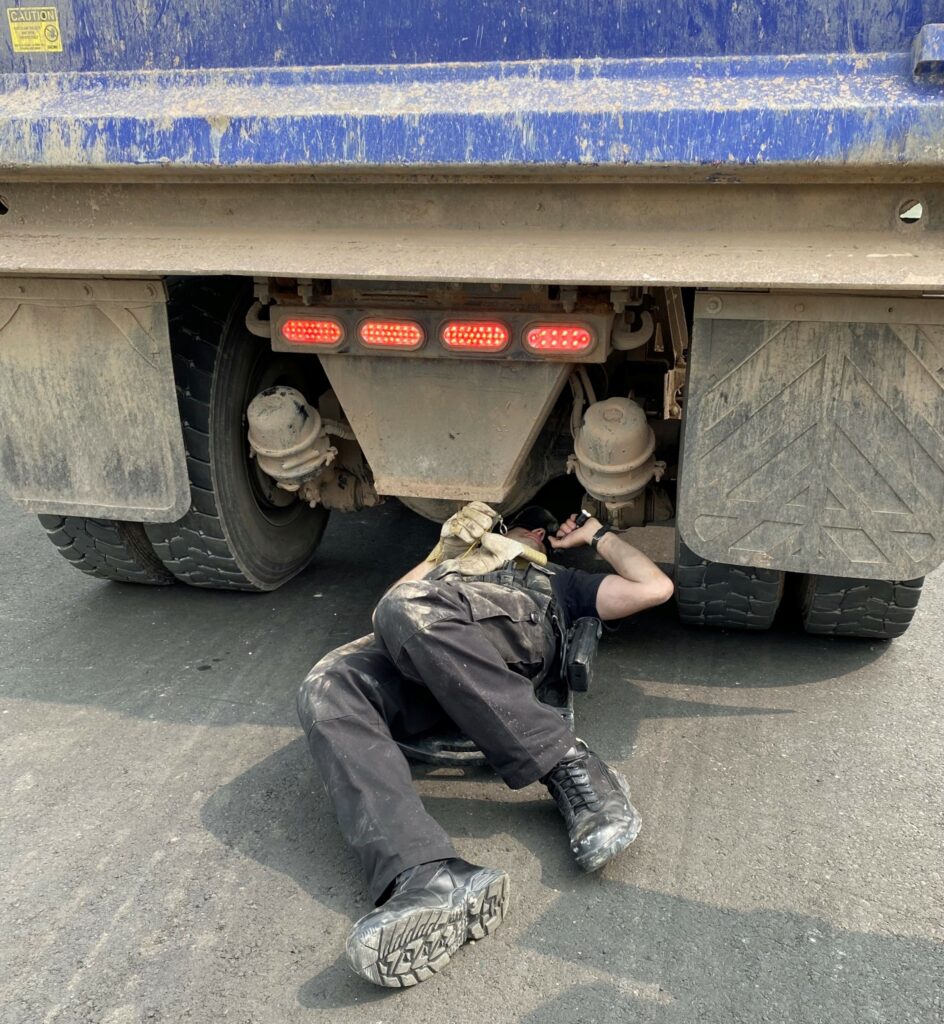Don’t evade your safety obligations
Traveling on public transport is generally boring but there was a touch of drama on a recent trip I took. I was riding a GO Transit train from the suburbs to downtown Toronto for the annual Ontario Safety League (OSL) luncheon when a fare inspection announcement was made.
Commuters retrieved their fare cards and tickets to provide proof of payment. Two guys sitting beside me started squirming in their seats. We were approaching Union Station, the final stop, and it looked like the fare inspector would not make it in time to our section of the railcar.
Along the way, he issued a fine to a person who claimed to have forgotten to tap the payment machine. Then the train stopped before reaching the station for a couple of minutes, giving the fare inspector the time to approach our section.

The guys next to me did not offer excuses, presented their identification, and accepted the fines. The train pulled into the station, and I exited behind them.
“I thought we would get away with it,” said one guy. “Just bad luck,” said the other, as they went on their way, shouldering their fancy laptop satchels.
First time offenders receive a $35 fine. The fare from where they got on the train to the final stop is about $6. Paying a fine on the odd chance you get caught is worth it for those who regularly ride without paying.
Enforcement is important, whether checking fare payment on public transit or enforcing regulations for commercial vehicles on our roadways.
Road safety and enforcement
Prabmeet Sarkaria, Ontario’s minister of transportation, highlighted road safety and enforcement during the OSL event. He noted the province added 22 enforcement officers last year and more will be hired in the future.
Last month, the government opened a $30 million commercial vehicle inspection station on Highway 11/17 near Thunder Bay.
Most fleets and their drivers operate safely, but there are always some bad apples. There are some who have unsafe equipment and force drivers to operate it. And there are some drivers who don’t perform proper inspections before, during and after trips.
These are the folks who look for routes to sneak past inspection stations because they know they are operating unsafely.
Endangering others
They are like fare evaders on public transit. They keep riding and operating until they are caught. Sometimes it is wash, rinse and repeat. While doing this, they are endangering others on the road. And they are shortchanging their families too. They must be, having loved ones waiting at home.
Parts get worn out and break, and trucks have many parts. If you don’t keep a close eye on them, you are one breakdown away from disaster. What if someone is injured in a crash, or worse?
Getting back to public transit, this was the second fare inspection in two weeks. I have been using the service regularly for three years, and until recently never encountered fare inspection staff. Hopefully the recent blitz will give fare evaders second thoughts.
Roadcheck is around the corner
Similarly, the Commercial Vehicle Safety Alliance’s International Roadcheck – a high-visibility, high-volume commercial motor vehicle inspection and regulatory compliance enforcement initiative – is scheduled for May 14-16.
This year, International Roadcheck will have two focus areas – tractor protection systems and alcohol and controlled substance possession.
Last year, Canadian enforcement teams placed 20.5% of inspected vehicles out of service during the blitz, compared to a 19.3% out-of-service rate in the U.S.
Teams completed 4,247 Level I, II and III Inspections on this side of the border, placing 1,453 vehicles and 260 drivers out of service. In the U.S., there were 53,847 inspections, with 15,932 vehicles and 5,020 drivers placed out of service.
Enforcement and the fear of penalties certainly help maintain safe roads. For those who prefer to operate unsafely, think about your loved ones and change your ways. Enforcement officers and your loved ones are waiting for you.
Have your say
This is a moderated forum. Comments will no longer be published unless they are accompanied by a first and last name and a verifiable email address. (Today's Trucking will not publish or share the email address.) Profane language and content deemed to be libelous, racist, or threatening in nature will not be published under any circumstances.
Inspect your truck at the end of the day/run. Better to find something wrong that can be fixed while you are home and off rather than broken down in Outback Ontario and/or in the middle of winter.
Great article, Leo. I constantly remind all our owner-operators to drive like they have their family in the truck with them and look after the equipment with the same thoughts. Don’t cut corners or skimp on pre-trip and post-trip inspections.